Foreign teachers of the Faculty of History
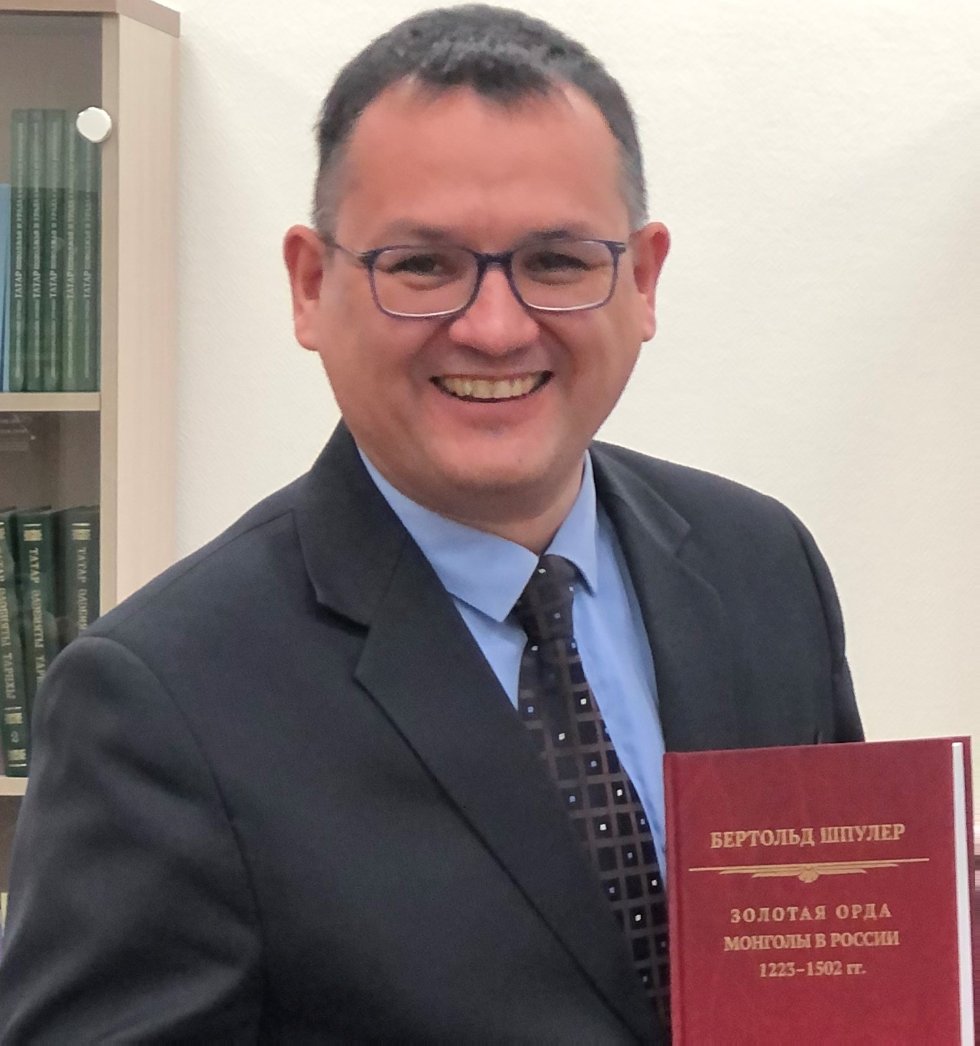 |
Gatin Marat Salavatovich Candidate of Historical Sciences, Associate Professor. Since 2024, he has been working at the Department of History of Uzbekistan at the Faculty of History, Sharof Rashidov Samarkand State University. In 2006, he defended his candidate dissertation at Kazan State University on the topic "Problems of the History of the Ulus of Jochi and Post-Mongol States of Eastern Europe in 19th–20th Century German Historiography." He is fluent in Russian, Tatar, German, English, and Uzbek. During his career, he has authored 6 textbooks, 11 monographs, and more than 90 scientific articles. More than 12 articles of his have been published in SCOPUS journals, and his Hirsch-index is 3. He is the leader of the Russian Science Foundation grant project for the years 2022-2025 on the topic “Social and Political Organization of the Eurasian Space in the Middle Ages (Historical Experience of the Golden Horde and Iran in the 13th–14th Century)” (Project number: 23-18-00147, link).
|
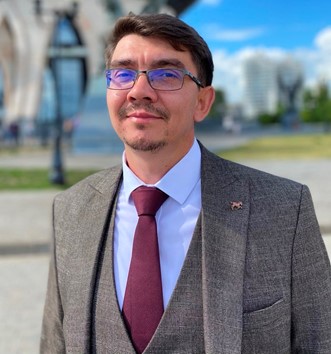 |
Abzalov Lenar Firgatovich Candidate of Historical Sciences, Associate Professor. Since 2024, he has been working at the Department of History of Uzbekistan at the Faculty of History, Sharof Rashidov Samarkand State University. In 2009, he defended his candidate dissertation at Kazan State University on the topic "Official Written Language and Office Culture of the Ulus of Jochi." He is fluent in Russian, Tatar, English, and Turkish. During his career, he has authored 5 textbooks, 7 monographs, and more than 40 scientific articles. More than 13 articles of his have been published in SCOPUS journals, and his Hirsch-index is 3. He is a member of the Russian Science Foundation grant project for the years 2022-2025 on the topic “Social and Political Organization of the Eurasian Space in the Middle Ages (Historical Experience of the Golden Horde and Iran in the 13th–14th Century)” (Project number: 23-18-00147, link).
|
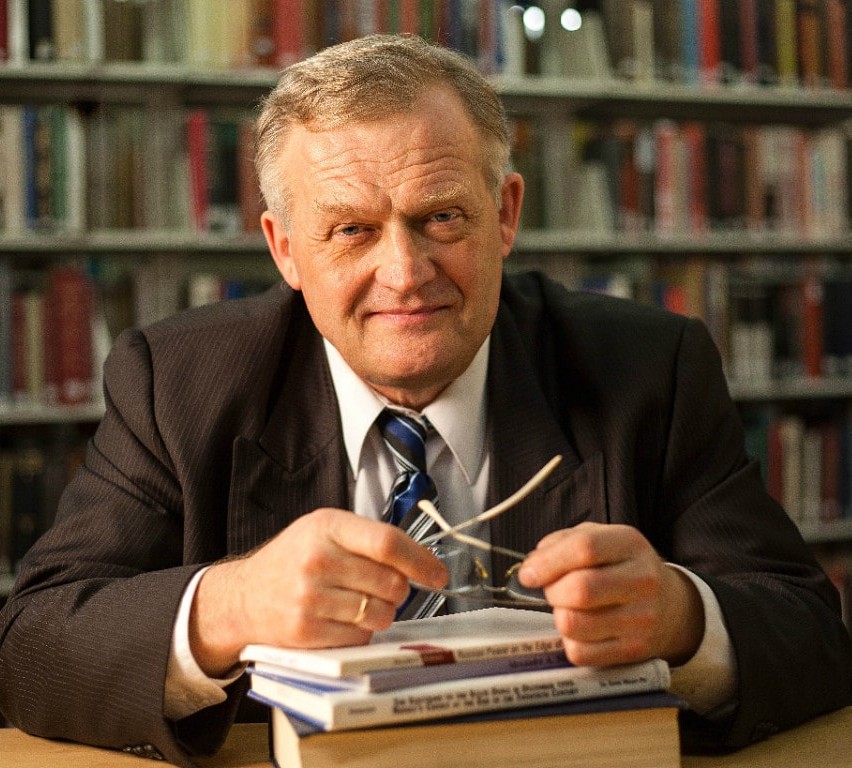 |
Aleksandr Strokanov Director of the Institute of Humanities at Vermont State University, Professor. He teaches courses on Introduction to World History, Western Civilization, European and Asian History. Aleksandr Strokanov is the author of more than 12 textbooks, over 70 scholarly articles, and a participant in several international grant projects. Research interests: History and politics of Central Asia, including Uzbekistan. |
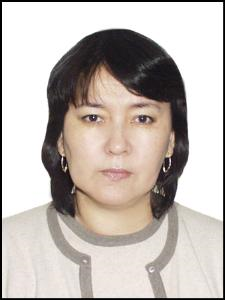 |
Khabidzhanova Gulnara Bolatovna Graduated from Al-Farabi Kazakh National University. Doctor of Historical Sciences, Professor. Author of more than 42 educational and methodological works, and over 40 research articles published in international journals, including those indexed in SCOPUS and Web of Science. She is the leader and participant of several international and fundamental projects. |
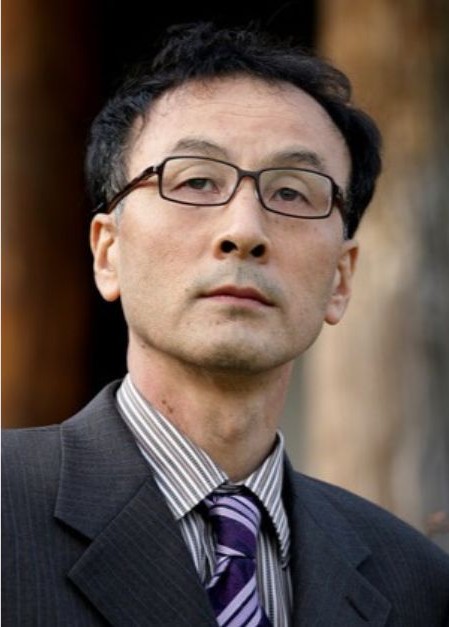 |
Youn Myung Chul Doctor of Historical Sciences (DSc), Professor. Since 2022, he has been working at Samarkand State University. Professor at Dongguk University, South Korea. Professor Youn holds a doctoral degree in history with the topic: “History of Koguryo and Maritime History of East Asia.” He is the author of over 60 books, 10 poetry collections, and more than 160 scientific articles. Notable works:
|
|
YU TAE-YONG Arxeologiya fanlari bo‘yicha falsafa doktori (PhD), professor. 2024-yildan buyon Samarqand davlat universitetida faoliyat yuritmoqda. Janubiy Koreyaning Cheonggoo Arxeologiya instituti direktori. Professor Yu Tae-Yong “Dolmenlar uyushmasi” mavzusida arxeologiya fanlari bo‘yicha PhD ilmiy darajasini olgan. U 9 ta kitob, 63 ta ilmiy maqola va 170 dan ortiq arxeologik hisobotlar muallifidir. Nashr etilgan maqolalaridan ba'zilari:
Asosiy kitoblari:
|
|
 |
Michael Shenkar Associate Professor of Pre-Islamic Iranian Studies. His research focuses on the civilizations and cultures of the pre-Islamic Iranian world, studied through material remains and visual representations. His academic interests include the archaeology, art, and religions of pre-Islamic Iran and Central Asia, with a particular focus on Zoroastrianism (especially religious iconography), the culture of Eurasian nomads, Sogdian civilization, and the history of the Silk Roads. Professor Shenkar is currently co-director (together with Dr. Sharof Qurbonov, Academy of Sciences of Tajikistan) of the excavations at Sanjar-Shah, a city in northern Sogdiana dating from the 5th–9th centuries CE. His scholarly contributions include “Intangible Spirits and Carved Images. The Iconography of the Gods in Pre-Islamic Iran” (Boston–Leiden, 2014), “The Story of Faramarz in the Panjikent Murals” (2014), “Rethinking Sasanian Iconoclasm” (2015), “The Great Iranian Divide: Between the Aniconic West and the Anthropomorphic East” (2017), and “The Origins of the Sogdian Civic Communities (nāf)” (2020). Professor Shenkar has been awarded several prestigious honors, including the Alon Fellowship for Young Lecturers (Council for Higher Education, Israel), the Prix de l’Académie des Inscriptions et Belles-Lettres (Institut de France, Paris), the Alexander von Humboldt Research Fellowship (German Archaeological Institute, Berlin), and the Max Shlomjuk Prize for Best Doctoral Dissertation (Hebrew University of Jerusalem). He teaches courses on Zoroastrianism, civilizations and cultures of pre-Islamic Iran and Central Asia, the material culture of the Sasanian Empire, the Sogdian civilization, and the history of the Silk Roads. |
 |
Nargis Nurulla-Khodjayeva Doctor of Philosophy (PhD) in History. Since the 2021–2022 academic year, she has been working at the Department of World History, Samarkand State University. She previously worked at Moscow State University. She is fluent in about ten languages, including Russian, Tajik, Turkish, and English. She is the author of one monograph, three textbooks, and more than 50 scientific articles. |
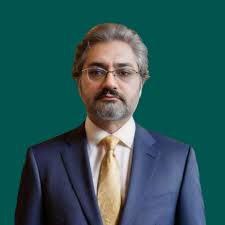 |
Babak Rezvani +99894 811-37-96 Doctor of Philosophy (PhD) in History, Professor. Since the 2024-2025 academic year, he has been working at the Department of World History at Samarkand State University. From 2007 to 2012, he was a board member of the inter-university research school for the study of development factors. For many years, he conducted research at the Amsterdam Institute for Social Science Research (AISSR) and the School for Regional, Transnational, and European Studies at the University of Amsterdam. Professor Babak Rezvani is the chairman of the Association for the Study of Ethnogeopolitics in the Netherlands. With his scientific publications, he has participated in major international conferences in Turkey, Iran, the Netherlands, Uzbekistan, the USA, and Georgia. He is fluent in more than ten languages, including Dutch, Persian, Russian, Turkish, and English. He has published 2 monographs, 5 textbooks, and more than 70 articles. Additionally, 10 of his articles have been published in Scopus-indexed journals, and his h-index is 5. |
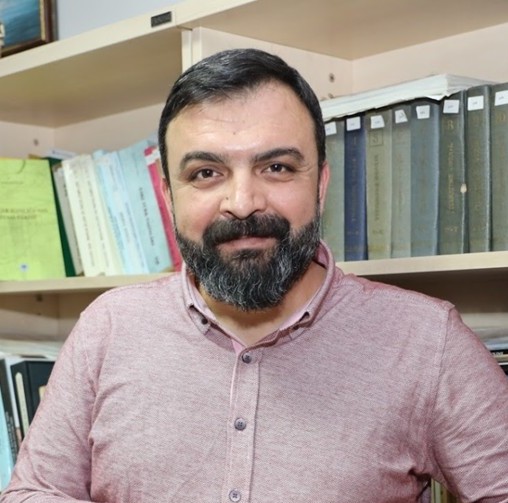 |
Sadullah Gülten Doctor of Historical Sciences, Professor. Since 2025, he has been working at the Department of the History of Samarkand Civilization, Faculty of History, Samarkand State University named after Sharof Rashidov. He received the title of Associate Professor in 2014 and Professor in 2019. In 2023, he began working at the Department of Alevi-Bektashi Culture at Ankara Hacı Bayram Veli University. Professor Gülten is also the Director of the Research Center for Turkish Culture and Hacı Bektash Veli Studies. He has written scholarly articles on topics such as “Bozok Turkmens,” “Cracks from Ancestors to Homeland,” “Heterodox Dervishes and Alevis,” “The Ancestors of Prophet Muhammad (PBUH),” and “History of the Turks.” He is the author of several books, including “Ali,” “Qizilbash between the Ottomans and Safavids,” “From Bozok to Yozgat: Villages and Peasants (1529–1844),” “Three, Seven, Forty: Sultans of the Spiritual World,” and “From the Huns to the Foundation of the Republic of Turkey” (editor). |

